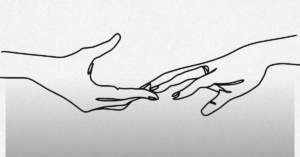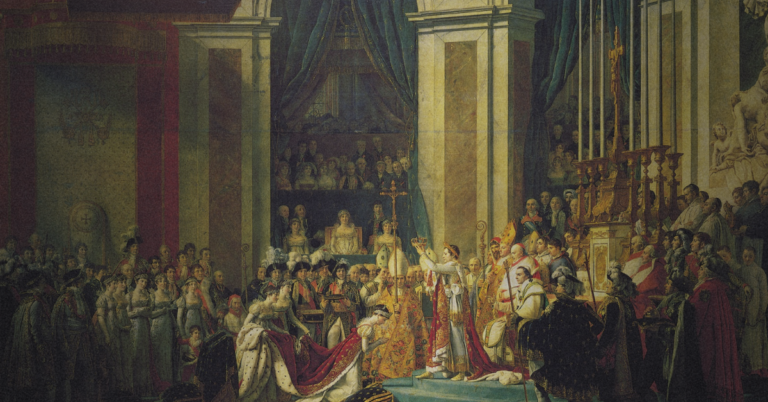Welcome to Week 4 (you can read week three here) of our 10-week Bible study journey through the remarkable story of Hannah.
We live in a society that often values self-sufficiency and independence above everything! More often than not, we do not like to ask for help from people, be it an acquaintance, a friend, our spouse or God himself.
Hannah’s story, however, offers a stark and compelling contrast. Hannah’s example challenges our reluctance to seek help and dependence on others, highlighting the power of vulnerability and reliance on God. Despite her desperate longing for a child, Hannah didn’t rely solely on her own strength or resources.
Her story invites us to embrace vulnerability and to recognize that true strength lies not in self-sufficiency but in our willingness to trust in God’s provision and guidance.
As we delve into Hannah’s story, let’s open our hearts to the truths God desires to reveal. May we be inspired by Hannah’s unwavering faith and trust in God’s promises, and may her example encourage us to approach our own challenges with boldness and perseverance in prayer.
Related Reading: An Overview of Our 10 Week Bible Study
What is Hannah known for in the Bible?

Hannah is a central figure in the biblical narrative, whose story is found in the old testament in 1 Samuel 1:2 – 2:21. The story of Hannah unfolds amidst the backdrop of Israel’s spiritual decline and moral chaos. She grapples with the profound struggle of infertility, which not only challenges her desire for motherhood but also her sense of self-worth.
Hannah’s husband, Elkanah, has two wives: Hannah and Peninnah. Elkanah’s other wife, Peninnah, was able to bless Elkanah with a male child, a firstborn son, while Hannah remained childless. Despite having a young son with Peninnah, Elkanah preferred Hannah; but her inability to conceive a male child caused her great anguish.
Hannah’s profound desire for a child, coupled with the relentless taunts of her adversary (who had several children), plunges her into deep anguish. Yet, amidst her desperation, she finds solace in placing her hope and faith in God.
With unwavering resolve, Hannah prayed and asked God for divine intervention. God answered Hannah’s prayer, and through His miraculous intervention, Hannah conceived Samuel, a significant prophet in Israel’s history. Samuel played a pivotal role in anointing Israel’s first king, Saul, and later, the renowned King David.
Ultimately, Hannah’s story serves as a powerful reminder that our God, the King of Kings and Lord of Lords, is always at work in the lives of His people. No matter how long the wait or how bleak the circumstances may seem, we can trust in His faithfulness and sovereignty. Hannah’s journey underscores the enduring hope and redemption that God brings, even in the midst of life’s greatest trials.
The life of Hannah represents what?
Hannah’s story speaks to the universal human experience of longing and desire. Like Hannah, we wrestle with doubt and question whether our desires will ever be fulfilled, facing the daily pain of waiting and uncertainty.
Her journey of waiting, praying, and believing offers hope and encouragement to women who may be grappling with their own unmet desires and aspirations.
Join us as we delve into the emotional journey of a woman facing the heartache of infertility, grappling with feelings of self-worth and doubt, and enduring the relentless taunts of her adversary.
What are the three powerful lessons we can learn from Hannah?

Hannah’s narrative holds immense significance within the broader biblical context and can teach us the following:
- Firstly, it illuminates the theme of divine intervention and underscores God’s sovereignty. Hannah’s infertility and the subsequent miraculous birth of Samuel vividly illustrate God’s ability to intervene in human affairs and accomplish His plans according to His own timing and purposes. This theme of divine intervention echoes throughout the Bible, serving as a powerful reminder of God’s ultimate authority and control over every aspect of creation.
- Hannah’s story highlights the power of prayer and the importance of seeking God’s will. Despite what she faced, Hannah remained steadfast in her faith and devoted herself to prayer. Hannah’s prayer and supplication at the Tabernacle demonstrates the transformative nature of prayer and the profound impact it can have on individual lives and the course of history.
- Hannah’s dedication of Samuel to the Lord’s service symbolizes the concept of consecration and the importance of offering one’s life and resources to God. By dedicating her long-awaited son to God’s service, Hannah exemplifies the call for believers to surrender their lives and talents for God’s purposes, trusting that He will use them for His glory and the advancement of His kingdom.
In 1 Samuel 2, Hannah presents a song to worship God. In this hymn, Hannah reflects on themes of redemption, justice, and the reversal of fortunes. The hymn celebrates God’s faithfulness to His people, shows His provision for the needy, and His ability to bring about His purposes through ordinary individuals who trust in Him wholeheartedly, knowing He is faithful to fulfill His promises.
How does Hannah relate to women in 2024?

Hannah’s story holds profound relevance for modern women, offering valuable insights and inspiration for navigating the complexities of life, faith, and womanhood. Here’s how Hannah’s narrative resonates with contemporary women:
- To Those Dealing With Infertility & Longing For Motherhood: Many modern women face the heartbreaking challenge of infertility or delayed motherhood. Although Hannah’s barrenness caused turmoil and anguish, Hannah prayed for a child. Hannah reminds us that we are not alone in our longing for motherhood and that God hears and answers prayers in His perfect timing.
- To Those That Find Their Value Outwardly: In a world that values success, achievement, and outward appearances, Hannah’s story offers a counter-cultural message of finding fulfillment and identity in God alone. Her unwavering faith and trust in God’s promises encourage women to prioritize their relationship with God above all and to trust in His faithfulness to guide their paths.
- To Those Struggling With Private Prayer: Hannah’s example at the Tabernacle illustrates the simplicity of prayer. Cry out to our heavenly father. There’s no need for fancy words or phrases; just pour out your heart to God and trust that He hears our cries and will answer according to His will. Despite seemingly insurmountable obstacles and disappointments, Hannah continued to seek God’s intervention with fervent prayers. Her example inspires us to persevere in prayer, trusting that God hears their cries and will answer according to His will and timing.
- To Those That Must Be in Control: Hannah’s act of dedicating her long-awaited son, Samuel, to the Lord Almighty reflects a profound act of surrender and trust in God’s plan. Hannah’s willingness to relinquish control over her son’s future and entrust him to God’s care challenges us to surrender our own desires, plans, and aspirations to God’s sovereign will. Her story encourages us to trust in God’s faithfulness and believe that He has a purpose and plan for our lives, spouses, and children, even when the future seems uncertain.
A 5 day Hannah Bible Study

Have you ever had hopes and dreams that did not turn out as you planned? Perhaps you find yourself single when you desire a home and family. Maybe your career has bottomed out, or you are bored with your chosen profession. Although your dreams may differ from Hannah’s, you will identify with her feelings of disappointment and hurt.
Day One Bible Study
Brief Historical Background: Hannah lived during the period of the judges, just as Deborah and Ruth did. Her story occurred toward the end of this period when Israel had no king, approximately 1120 BC. Eli was both the high priest and the judge of Israel at that time. Start today by reading 1 Samuel 1:1-18. Then, take a moment to reflect on the passages and jot down your thoughts below:
1. Describe the situation in Hannah’s home (think about Hannah’s status as the primary wife and her lack of child bearing capacities).
2. How would you have felt in Hannah’s situation?
3. Write down the ways that Hannah dealt with her emotions.
4. How do you usually handle your emotions? What can you learn from Hannah?
5. How did Eli encourage Hannah?
6. Write: Has there been a time when God sent someone to encourage you to believe He would answer your prayers? If so, write what happened and how God’s encouragement impacted you.
7. Prayer: Write a prayer asking God to send you someone to encourage you in one of your struggles.
Day Two Bible Study
Start today by rereading 1 Samuel 1:11. Then, take a moment to reflect on the passages and jot down your thoughts below:
8. What was Hannah’s vow?
9. Read Numbers 6:2-8 concerning the Nazirite vow and answer these questions:
a. What was the main point of the Nazirite vow? (Num. 6:2, 6, 8) FYI: To see the main point of any passage, look for repeated words, phrases, or ideas.
b. What were the outward identifications that someone had taken this vow?
c. What parallels do you see between the Nazirite and Hannah’s vow that would suggest that her son would be a lifelong Nazirite? What doesn’t seem to fit?
10. Consider the significance of Hannah’s vow. Why do you think she was willing to make such an extreme promise?
11. Write: As a believer, you are set apart, or dedicated, to the Lord for the rest of your life, similarly to Samuel. In what outward ways should others be able to identify Christians? Can others so identify you? Why or why not?
12. Write: Through a poem, a picture, or a written prayer, describe your dedication to the Lord.
Day Three Bible Study
Start today by reading 1 Samuel 1:19-28. Then, read the following verses about vows: Deuteronomy 23:21-23, Ecclesiastes 5:1-7 and Matthew 5:33-37. Then, take a minute to reflect on the passages and jot down your thoughts below:
13. What did you learn about vows?
14. What vows have you made before God? Considering the previous verses, how important is it to fulfill them?
15. How would you have felt if you were Hannah, knowing that the time would come to deliver your son to the Tabernacle to fulfill your vow?
16. Prayer: Ask God for the integrity to follow through with your promises (your word), even when it hurts to do so.
Day Four Bible Study
Start today by reading 1:20-28; 2:1-21. Then, take a minute to reflect on the passages and jot down your thoughts below:
17. Describe Hannah’s attitude as she left Samuel.
18. What insights do you gain from Hannah’s words that help you understand how she could have this attitude at such a difficult time?
19. Which of these truths about God do you need to remember right now in your present situation? Why?
20. How did Hannah triumph in her life? What lesson, idea, etc., can you take away and apply to your life?
21. How did God bless Hannah’s faithfulness to Him?
22. Prayer: Write a prayer of praise for something God has done for you this past week.
Day Five Bible Study
Start today by reading and reviewing Hannah’s story. Read 1 Samuel 2:12-34; 3:10-21. Then, take a minute to reflect on the passages and jot down your thoughts below:
23. Record your insights on God’s purpose and timing in giving Hannah her son Samuel.
24. Describe Hannah’s character traits. Give specific examples of each.
25. What is God saying to you personally through the story of Hannah?
26. What can we learn from Hannah’s relationship with God?
27. Prayer: Write a prayer responding to God’s message to you.
Conclusion
As we conclude our study of Hannah’s life, let’s reflect on some questions to ponder:
- How does Hannah’s story challenge our views on motherhood and the importance of bearing children?
- In what ways do we seek validation and self-worth from external sources rather than from God?
- What struggles do we face in our prayer life, and how can we learn from Hannah’s example of perseverance in prayer?
- How does Hannah’s surrender to God’s control challenge our own desire for control over our lives?
- What can we learn from Hannah’s faith and trust in God’s timing and provision, even in the midst of her deepest struggles?
As we reflect on Hannah’s life, let us remember the profound lessons it offers us. Hannah’s journey reminds us of the power of prayer, the importance of trusting in God’s timing, and the transformative impact of surrendering our desires to His will.
As we navigate our struggles with motherhood, self-worth, prayer, and the desire for control, may we find inspiration in Hannah’s unwavering faith and resilience. Let us reflect on her example and allow it to shape our own lives, drawing us closer to God and His purposes for us.












